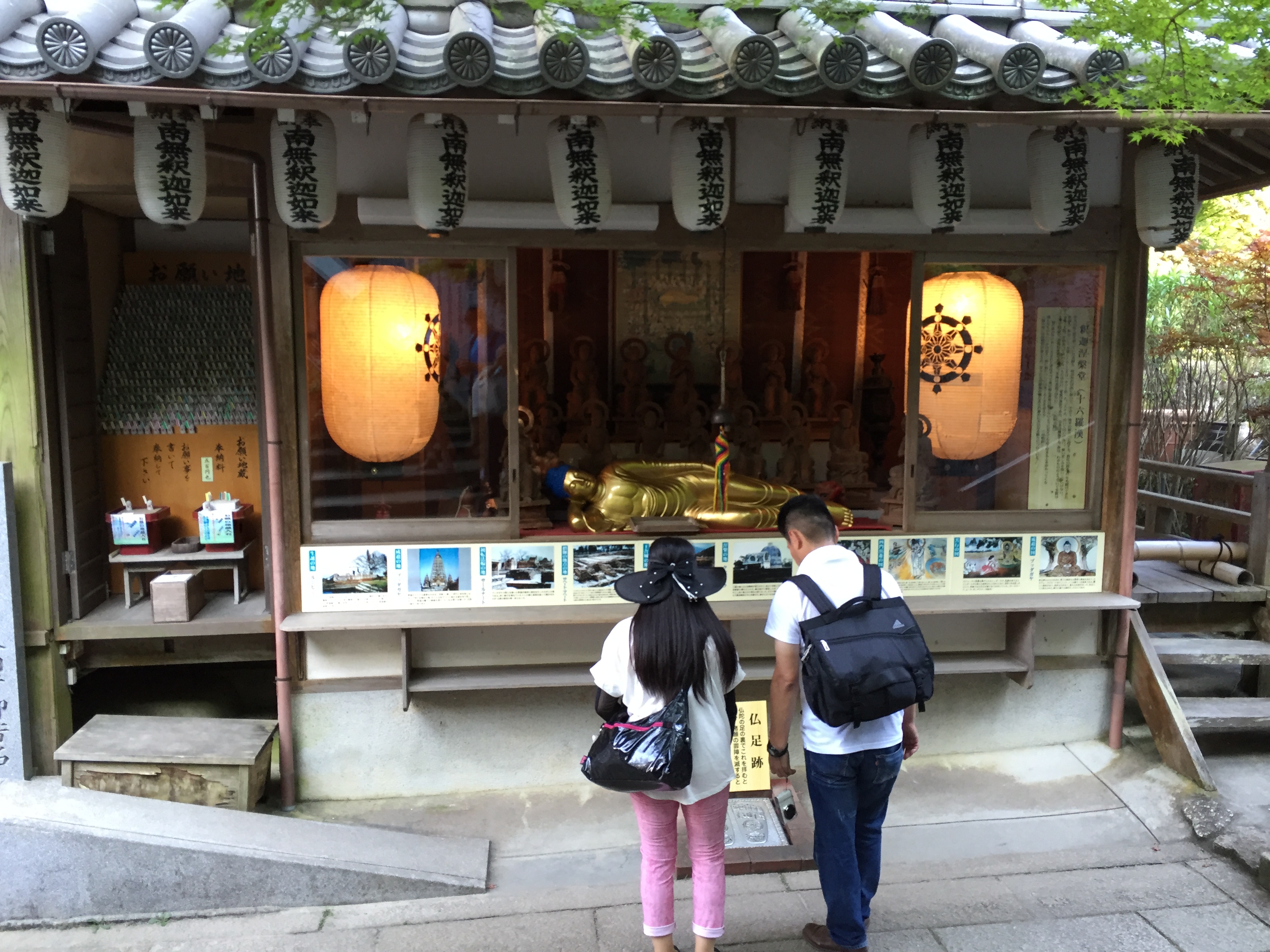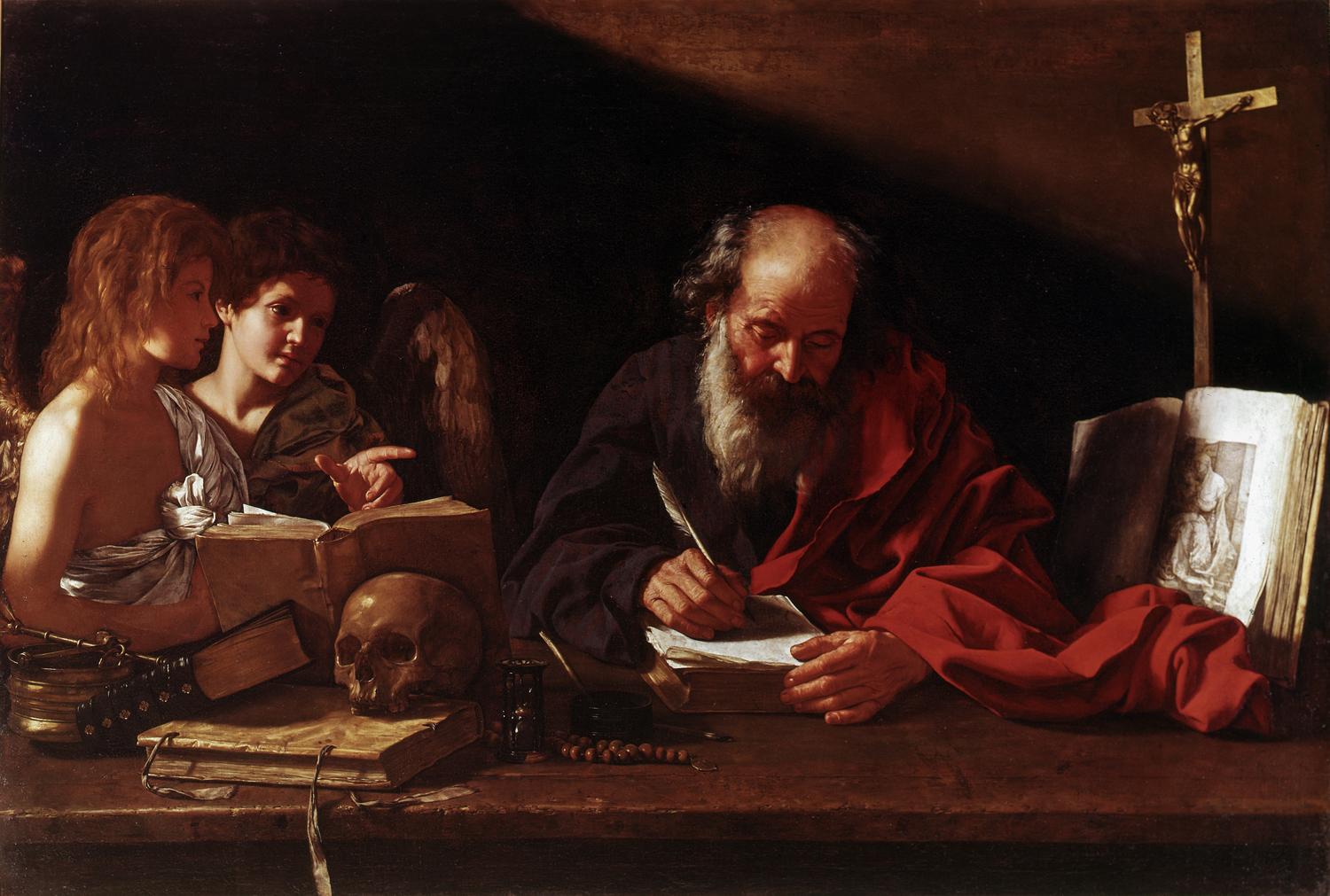|
Monastic Order
Monasticism (from Ancient Greek , , from , , 'alone'), also referred to as monachism, or monkhood, is a religious way of life in which one renounces worldly pursuits to devote oneself fully to spiritual work. Monastic life plays an important role in many Christian churches, especially in the Catholic and Orthodox traditions as well as in other faiths such as Buddhism, Hinduism and Jainism. In other religions monasticism is criticized and not practiced, as in Islam and Zoroastrianism, or plays a marginal role, as in modern Judaism. Many monastics live in abbeys, convents, monasteries or priories to separate themselves from the secular world, unless they are in mendicant or missionary orders. Buddhism The Sangha or community of ordained Buddhist bhikkhus ("beggar" or "one who lives by alms".) and original bhikkhunis (nuns) was founded by Gautama Buddha during his lifetime over 2500 years ago. This communal monastic lifestyle grew out of the lifestyle of earlier sects of ... [...More Info...] [...Related Items...] OR: [Wikipedia] [Google] [Baidu] |
Ancient Greek
Ancient Greek includes the forms of the Greek language used in ancient Greece and the ancient world from around 1500 BC to 300 BC. It is often roughly divided into the following periods: Mycenaean Greek (), Dark Ages (), the Archaic period (), and the Classical period (). Ancient Greek was the language of Homer and of fifth-century Athenian historians, playwrights, and philosophers. It has contributed many words to English vocabulary and has been a standard subject of study in educational institutions of the Western world since the Renaissance. This article primarily contains information about the Epic and Classical periods of the language. From the Hellenistic period (), Ancient Greek was followed by Koine Greek, which is regarded as a separate historical stage, although its earliest form closely resembles Attic Greek and its latest form approaches Medieval Greek. There were several regional dialects of Ancient Greek, of which Attic Greek developed into Koi ... [...More Info...] [...Related Items...] OR: [Wikipedia] [Google] [Baidu] |
Missionary Order
A missionary order is a Catholic religious order devoted to active missionary work. No Catholic religious order was founded for that purpose, but all the mendicant orders have been active in this field and others too, in particular the Jesuits, whose members include outstanding missionaries such as Saint Francis Xavier and Matteo Ricci. Even monastic orders have engaged and still engage in missionary endeavours, as did, for instance, the Benedictines whom Pope Gregory the Great sent to evangelize the Angles. A missionary congregation is a religious congregation devoted to active missionary work. Some, as that of the Marist Fathers, have that field of work as the purpose for which they were founded. A Catholic missionary society is a society of apostolic life devoted to active missionary work. Orders and congregations are classes of religious institutes, but societies of apostolic life, while similar, are of distinct character in that their members do not take religious vows. M ... [...More Info...] [...Related Items...] OR: [Wikipedia] [Google] [Baidu] |
Cenobitic
Cenobitic (or coenobitic) monasticism is a monastic tradition that stresses community life. Often in the West the community belongs to a religious order, and the life of the cenobitic monk is regulated by a religious rule, a collection of precepts. The older style of monasticism, to live as a hermit, is called eremitic. A third form of monasticism, found primarily in Eastern Christianity, is the skete. The English words "cenobite" and "cenobitic" are derived, via Latin, from the Greek words ''koinos'' (κοινός), "common", and ''bios'' (βίος), "life". The adjective can also be cenobiac (κοινοβιακός, ''koinobiakos'') or cœnobitic (obsolete). A group of monks living in community is often referred to as a cenobium. Cenobitic monasticism appears in several religious traditions, though most commonly in Buddhism and Christianity. Origins The word ''cenobites'' was initially applied to the followers of Pythagoras in Crotona, Italy, who founded a commune n ... [...More Info...] [...Related Items...] OR: [Wikipedia] [Google] [Baidu] |
Parinibbana
In Buddhism, ''parinirvana'' (Sanskrit: '; Pali: ') is commonly used to refer to nirvana-after-death, which occurs upon the death of someone who has attained ''nirvana'' during their lifetime. It implies a release from '' '', karma and rebirth as well as the dissolution of the ''skandhas''. In some Mahāyāna scriptures, notably the ''Mahāyāna Mahāparinirvāṇa Sūtra'', ''parinirvāṇa'' is described as the realm of the eternal true Self of the Buddha. In the Buddha in art, the event is represented by a reclining Buddha figure, often surrounded by disciples. Nirvana after death In the Buddhist view, when ordinary people die, each person's unresolved karma passes on to a new birth instantaneously; and thus the karmic inheritance is reborn in one of the six realms of '' samsara''. However, when a person attains nirvana, they are liberated from karmic rebirth. When such a person dies, it is the end of the cycle of rebirth, the Samsara and the Karma. Contemporary scholar R ... [...More Info...] [...Related Items...] OR: [Wikipedia] [Google] [Baidu] |
Young Monks Of Drepung
Young may refer to: * Offspring, the product of reproduction of a new organism produced by one or more parents * Youth, the time of life when one is young, often meaning the time between childhood and adulthood Music * The Young, an American rock band * ''Young'', an EP by Charlotte Lawrence, 2018 Songs * "Young" (Baekhyun and Loco song), 2018 * "Young" (The Chainsmokers song), 2017 * "Young" (Hollywood Undead song), 2009 * "Young" (Kenny Chesney song), 2002 * "Young" (Place on Earth song), 2018 * "Young" (Tulisa song), 2012 * "Young", by Ella Henderson, 2019 * "Young", by Lil Wayne from ''Dedication 6'', 2017 * "Young", by Nickel Creek from '' This Side'', 2002 * "Young", by Sam Smith from ''Love Goes'', 2020 * "Young", by Silkworm from '' Italian Platinum'', 2002 * "Young", by Vallis Alps, 2015 * "Young", by Pixey, 2016 People Surname * Young (surname) Given name * Young (Korean name), Korean unisex given name and name element * Young Boozer (born 1948), American bank ... [...More Info...] [...Related Items...] OR: [Wikipedia] [Google] [Baidu] |
Eremitic
A hermit, also known as an eremite (adjectival form: hermitic or eremitic) or solitary, is a person who lives in seclusion. Eremitism plays a role in a variety of religions. Description In Christianity, the term was originally applied to a Christian who lives the eremitic life out of a religious conviction, namely the Desert Theology of the Old Testament (i.e., the 40 years wandering in the desert that was meant to bring about a change of heart). In the Christian tradition the eremitic life is an early form of monastic living that preceded the monastic life in the cenobium. In chapter 1, the Rule of St Benedict lists hermits among four kinds of monks. In the Roman Catholic Church, in addition to hermits who are members of religious institutes, the Canon law (canon 603) recognizes also diocesan hermits under the direction of their bishop as members of the consecrated life. The same is true in many parts of the Anglican Communion, including the Episcopal Church in the Unit ... [...More Info...] [...Related Items...] OR: [Wikipedia] [Google] [Baidu] |
Asceticism
Asceticism (; from the el, ἄσκησις, áskesis, exercise', 'training) is a lifestyle characterized by abstinence from sensual pleasures, often for the purpose of pursuing spiritual goals. Ascetics may withdraw from the world for their practices or continue to be part of their society, but typically adopt a frugal lifestyle, characterised by the renunciation of material possessions and physical pleasures, and also spend time fasting while concentrating on the practice of religion or reflection upon spiritual matters. Various individuals have also attempted an ascetic lifestyle to free themselves from addictions, some of them particular to modern life, such as money, alcohol, tobacco, drugs, entertainment, sex, food, etc. Asceticism has been historically observed in many religious traditions, including Buddhism, Jainism, Hinduism, Islam, Christianity, Judaism, Stoicism and Pythagoreanism and contemporary practices continue amongst some religious followers. The pr ... [...More Info...] [...Related Items...] OR: [Wikipedia] [Google] [Baidu] |
Gautama Buddha
Siddhartha Gautama, most commonly referred to as the Buddha, was a wandering ascetic and religious teacher who lived in South Asia during the 6th or 5th century BCE and founded Buddhism. According to Buddhist tradition, he was born in Lumbini, in what is now Nepal, to royal parents of the Shakya clan, but renounced his home life to live as a wandering ascetic ( sa, śramaṇa). After leading a life of begging, asceticism, and meditation, he attained enlightenment at Bodh Gaya in what is now India. The Buddha thereafter wandered through the lower Indo-Gangetic Plain, teaching and building a monastic order. He taught a Middle Way between sensual indulgence and severe asceticism, leading to Nirvana, that is, freedom from ignorance, craving, rebirth, and suffering. His teachings are summarized in the Noble Eightfold Path, a training of the mind that includes meditation and instruction in Buddhist ethics such as right effort, mindfulness, and ''jhana''. He die ... [...More Info...] [...Related Items...] OR: [Wikipedia] [Google] [Baidu] |
Nyanatiloka
Ven. Nyanatiloka Mahathera (19 February 1878, Wiesbaden, Germany – 28 May 1957, Colombo, Ceylon), born as Anton Walther Florus Gueth, was one of the earliest Westerners in modern times to become a Bhikkhu, a fully ordained Buddhist monk. Early life and education Nyanatiloka was born on 19 February 1878 in Wiesbaden, Germany, as Anton Walther Florus Gueth. His father was Anton Gueth, a professor and principal of the municipal Gymnasium of Wiesbaden, as well as a private councillor. His mother's name was Paula Auffahrt. She had studied piano and singing at the Royal Court Theatre in Kassel. He studied at the Königliche Realgymnasium (Royal Gymnasium) in Wiesbaden from 1888 to 1896. From 1896 to 1898 he received private tuition in music theory and composition, and in playing the violin, piano, viola and clarinet. From 1889 to 1900 he studied theory and composition of music as well as the playing of the violin and piano at Hoch’sches Conservatorium ( Hoch Conservatory) in F ... [...More Info...] [...Related Items...] OR: [Wikipedia] [Google] [Baidu] |
Dāna
Dāna (Devanagari: दान, IAST: Dānam) is a Sanskrit and Pali word that connotes the virtue of generosity, charity or giving of alms in Indian philosophies. In Hinduism, Buddhism, Jainism, and Sikhism, dāna is the practice of cultivating generosity. It can take the form of giving to an individual in distress or need. It can also take the form of philanthropic public projects that empower and help many. Dāna is an ancient practice in Indian traditions, tracing back to Vedic traditions.Shah et al (2013), Soulful Corporations: A Values-Based Perspective on Corporate Social Responsibility, Springer, , page 125, Quote: "The concept of Daana (charity) dates back to the Vedic period. The Rig Veda enjoins charity as a duty and responsibility of every citizen." Hinduism Dāna (Sanskrit: दान) means giving, often in the context of donation and charity. [...More Info...] [...Related Items...] OR: [Wikipedia] [Google] [Baidu] |
Bhikkhu
A ''bhikkhu'' (Pali: भिक्खु, Sanskrit: भिक्षु, ''bhikṣu'') is an ordained male in Buddhist monasticism. Male and female monastics (" nun", ''bhikkhunī'', Sanskrit ''bhikṣuṇī'') are members of the Sangha (Buddhist community). The lives of all Buddhist monastics are governed by a set of rules called the prātimokṣa or pātimokkha. Their lifestyles are shaped to support their spiritual practice: to live a simple and meditative life and attain nirvana. A person under the age of 20 cannot be ordained as a bhikkhu or bhikkhuni but can be ordained as a śrāmaṇera or śrāmaṇērī. Definition ''Bhikkhu'' literally means "beggar" or "one who lives by alms". The historical Buddha, Prince Siddhartha, having abandoned a life of pleasure and status, lived as an alms mendicant as part of his śramaṇa lifestyle. Those of his more serious students who renounced their lives as householders and came to study full-time under his supervision also adopt ... [...More Info...] [...Related Items...] OR: [Wikipedia] [Google] [Baidu] |




.jpg)

.jpg)
